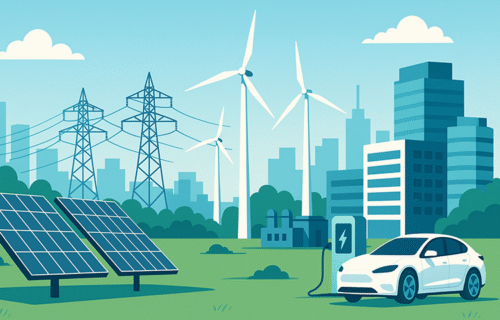Germany’s Monopolies Commission has released its 10th Energy Sector Report, calling for structural reforms across electricity, mobility, heating and gas systems. Chair Prof. Tomaso Duso said that current policies treat symptoms rather than causes of high energy prices, stressing that “lasting progress depends on efficiency and correct price signals.”
The report urges dynamic grid charges and stronger digitalisation of power networks to prevent renewable-energy curtailment and relieve congestion. Introducing nodal or zonal pricing, it argues, could send clearer signals to investors and consumers.
In public EV charging, the Commission warns that exclusive motorway concessions risk creating local monopolies and higher prices. It proposes open, competitive tenders and a mandatory price-transparency platform for ad-hoc charging.
For district heating, the watchdog highlights limited competition and weak transparency. It recommends a national price-comparison platform, light-touch benchmarking to curb excessive tariffs, and third-party access to large heating networks.
The Commission also identifies an urgent need for binding decommissioning plans for gas networks, citing declining demand and rising cost burdens for remaining users. Active dismantling, it says, will be cheaper than maintaining underused infrastructure.
Call-out | Electricity:
Variable grid charges and nodal pricing could shift the power market toward real-time efficiency, rewarding flexibility and reducing curtailment of renewables.
Call-out | Heating:
A transparency portal and price benchmarking would expose cost differences among district-heating operators, laying groundwork for fairer regulation.
Across all sectors, the Commission frames competition, transparency and digitalisation as the main levers for an efficient energy transition. The report concludes that without timely regulatory incentives, structural change will stall—leaving households and businesses exposed to persistently high system costs.
Source: Monopolies Commission (10th Sektorgutachten Energie, 4 Nov 2025); DIW Berlin.
